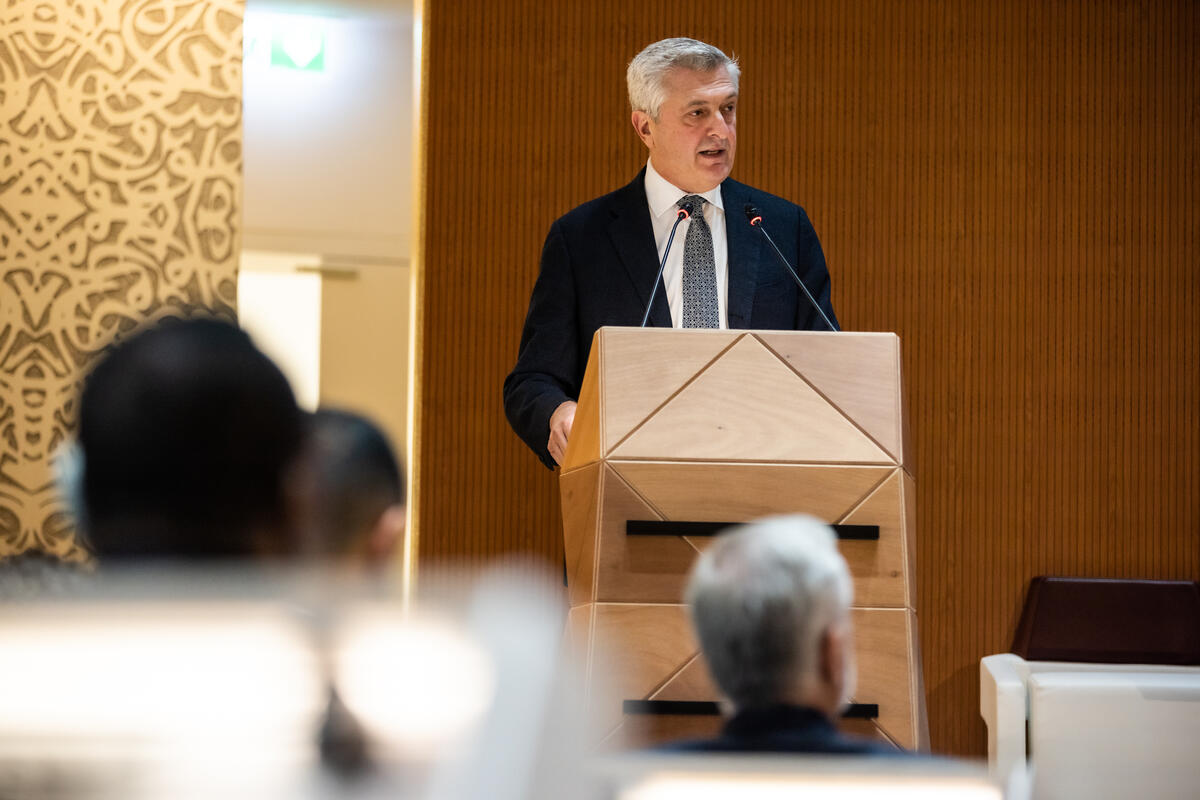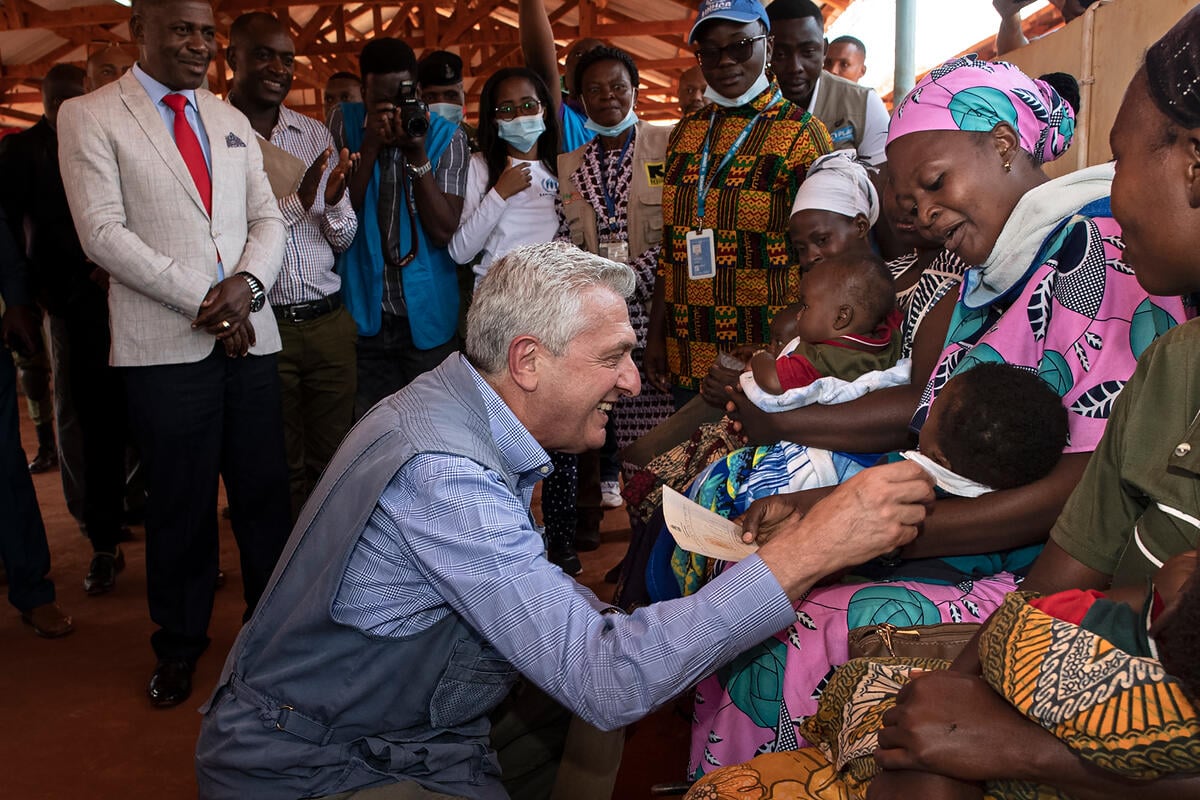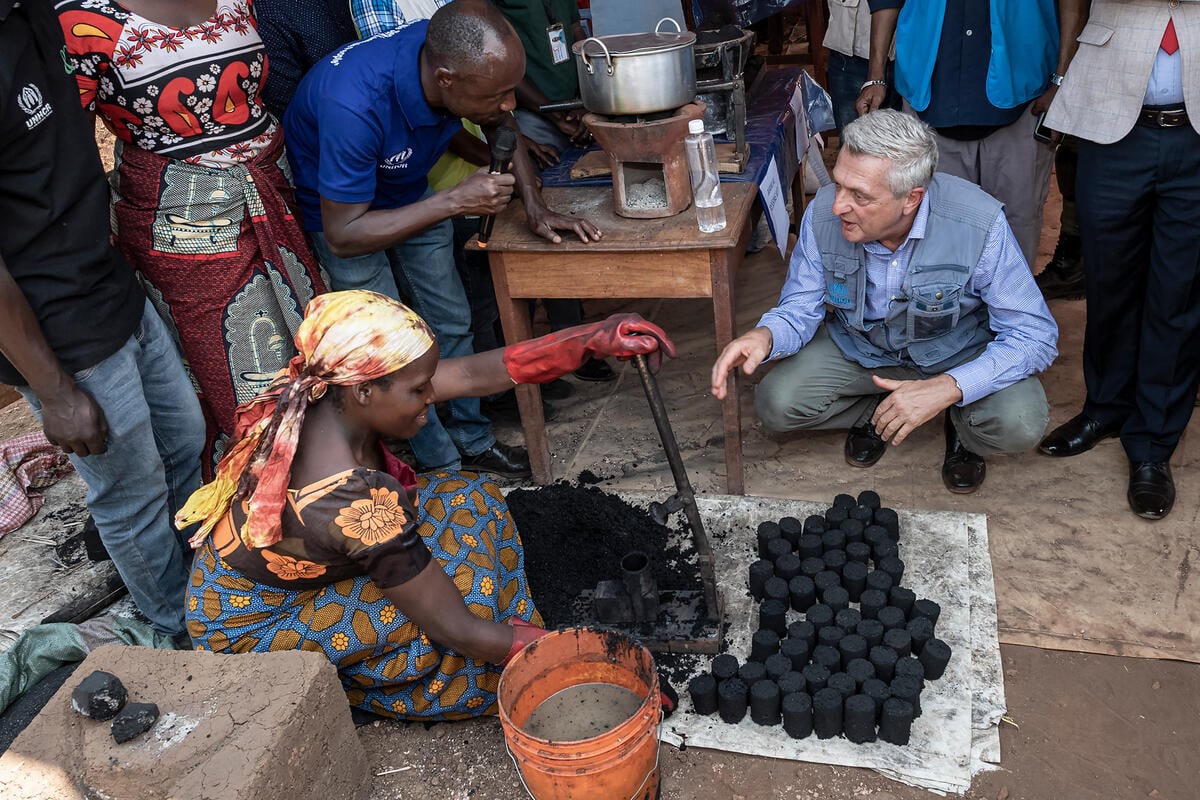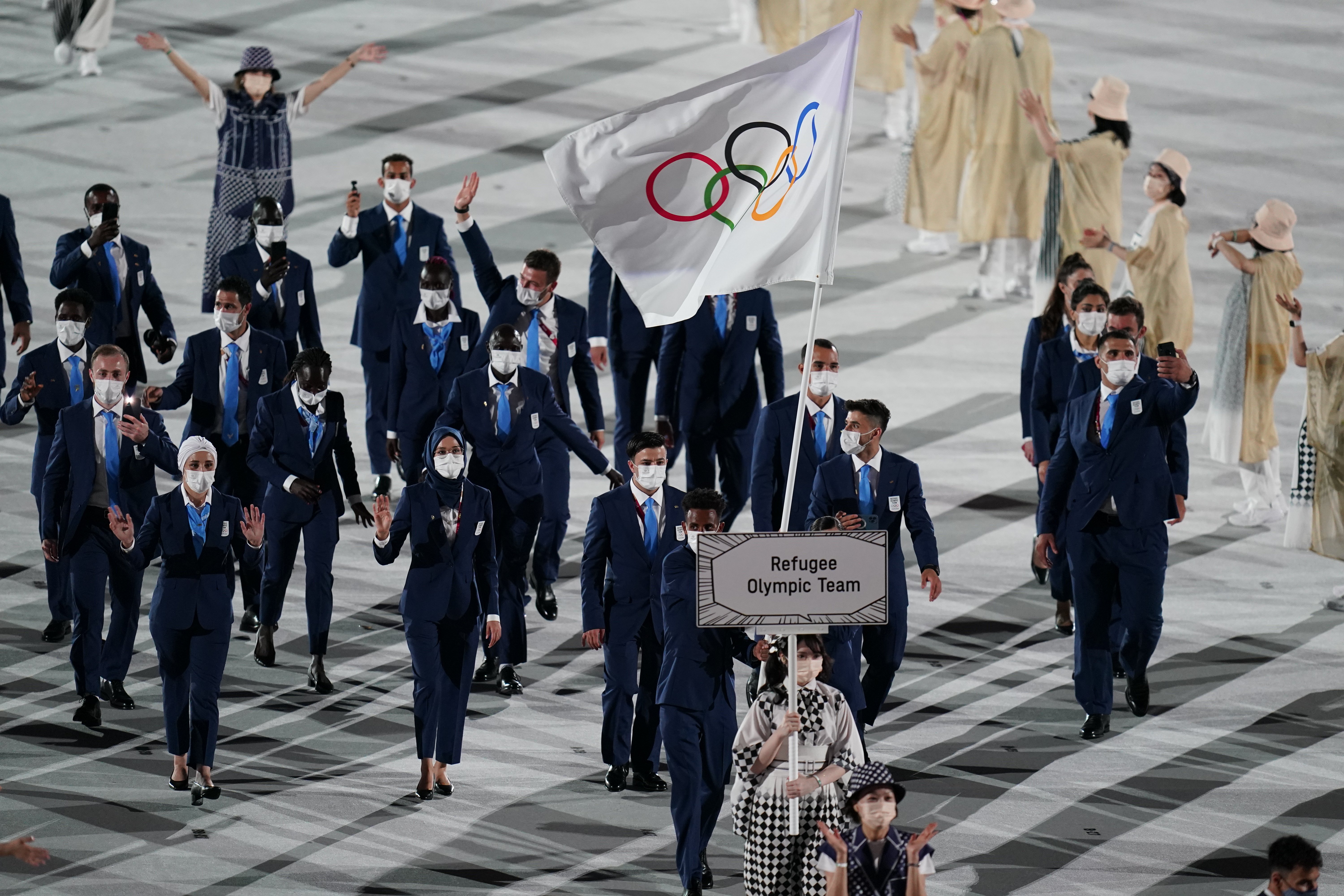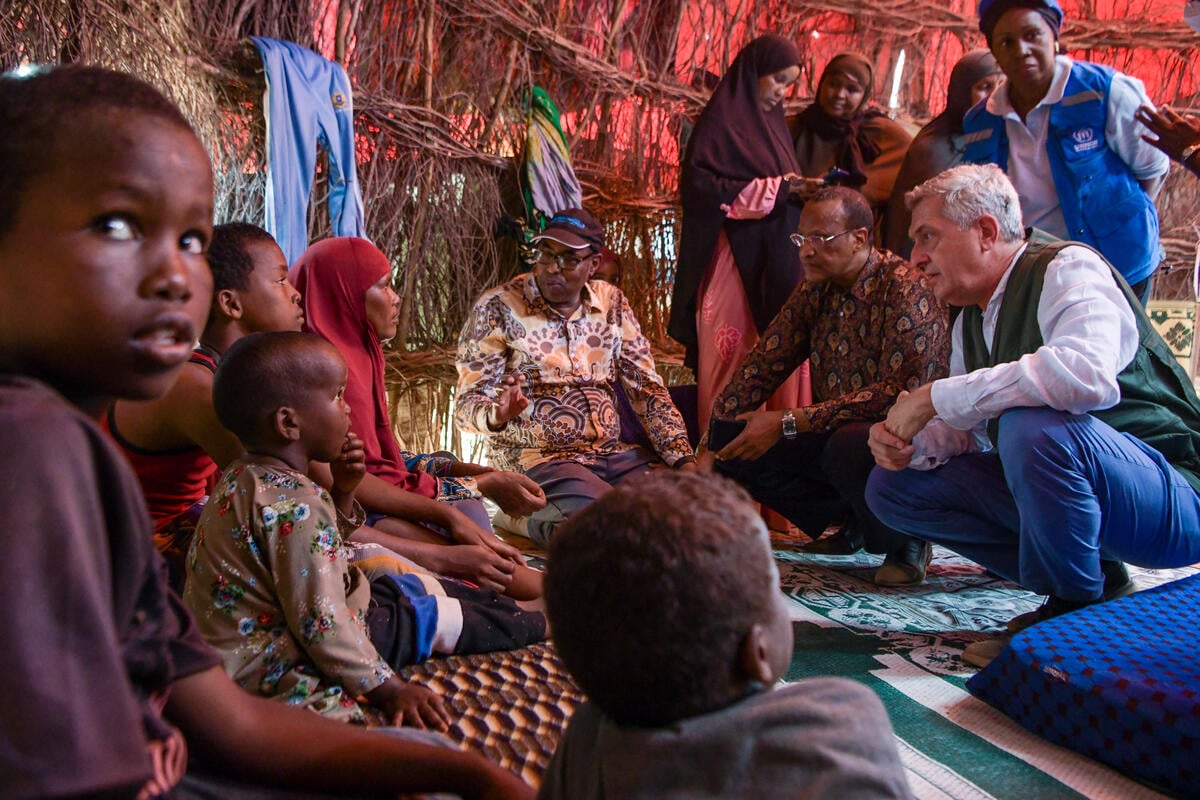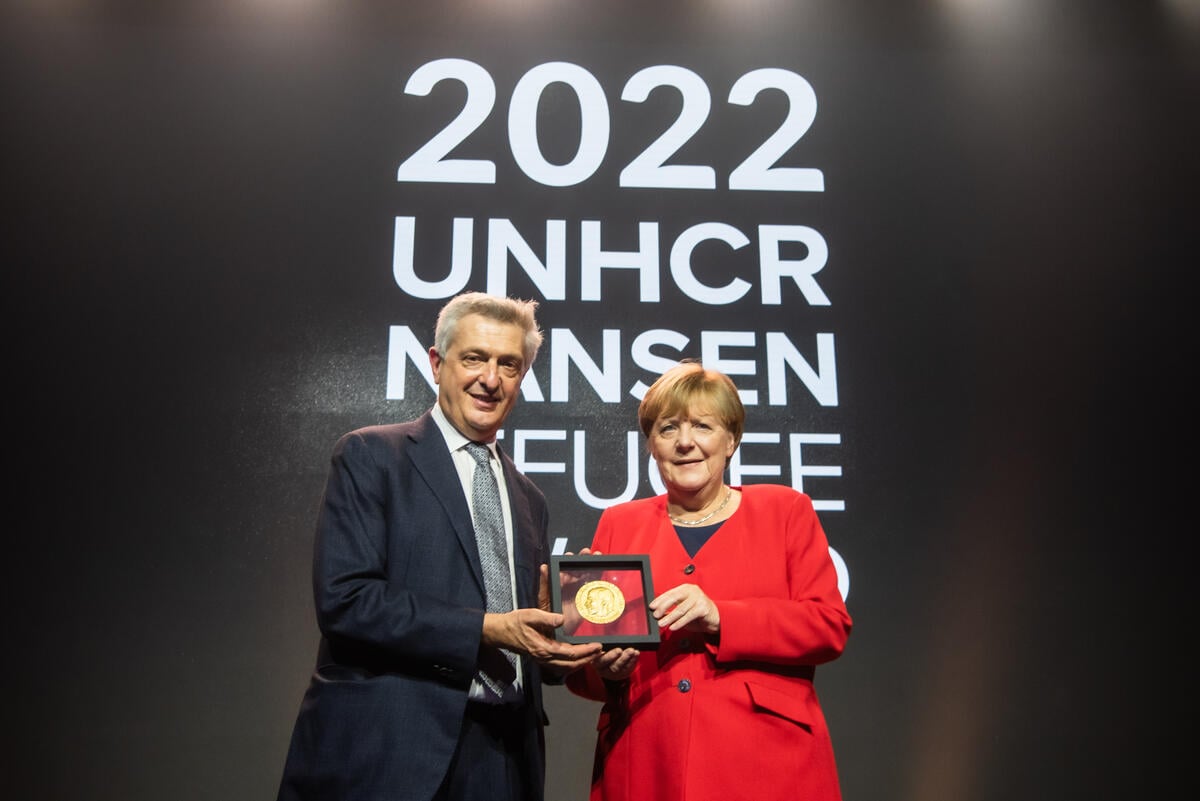Grandi calls for greater efforts to debunk myths around refugee crises
Grandi calls for greater efforts to debunk myths around refugee crises

GENEVA, Switzerland – UN High Commissioner for Refugees Filippo Grandi today called for redoubled efforts to tackle refugee crises through better support to the countries and regions hosting them, and to debunk claims of a ‘global’ refugee crisis.
Recalling that the vast majority of people fleeing from conflict were in their own or neighbouring countries, Grandi asserted: “There is no refugee crisis in Europe and no refugee crisis in America. The crisis is elsewhere."
Grandi was addressing the opening session of annual UNHCR-NGO consultations in Geneva, which brings together more than 300 non-governmental organizations from some 90 countries in the largest such UN humanitarian gathering.

Grandi praised the role of NGOs which he has described as the “lifeblood of the response to displacement and statelessness” and said for UNHCR they are “our enduring and natural partners wherever we work.”
“National and international NGOs – with their specific characteristics of local rootedness, specialization and visible international solidarity – help make protection and solutions a reality for the people who need it," he wrote in a pre-conference address.
Stressing that solidarity and compassion were still very much also in evidence, Grandi added that some politicians were misrepresenting facts to gain popularity.
"We need to reset the language.”
“Refugee and migratory flows can and should be managed in a responsible manner. The failure to do so simply fuels anxiety and xenophobia. The victims of violence are being dehumanized, and politicized – with politicians taking advantage to gain votes. We need to reset the language,” he told the gathering.
Grandi said the best way to counter restrictive policies was to engage and demonstrate how current refugee challenges can be better handled, by governments working together, and with the involvement of civil society, businesses, faith groups and others.

“There are very strong voices of solidarity as well as nationalism. We need to engage and show how things can be done better,” he said stressing that some 90 per cent of the current total of 68.5 million displaced people were in their own, or neighbouring countries – generally in developing regions in Africa, the Middle East and Asia. “This is where the crisis is, this is where support is needed.”
He said that an awareness of the need for new approaches was driving the development of a global compact on refugees – a new international accord to be adopted later this year, alongside one on safe, regular and orderly migration.
“Putting People First”
In a wide-ranging discussion with star BBC reporter Zeinab Badawi, Grandi praised the generosity of host countries, often in the global south. He said the theme of this year’s NGO consultations was Putting People First.
This year’s the annual consultations have also announced the establishment of the UNHCR-NGO Innovation Award. The award celebrates the achievements of NGOs that advance the delivery of services to persons of concern.
The winner will receive a prize of US $10,000 and the runner up US $8,000 at a ceremony in Geneva next December. Further details and submissions




